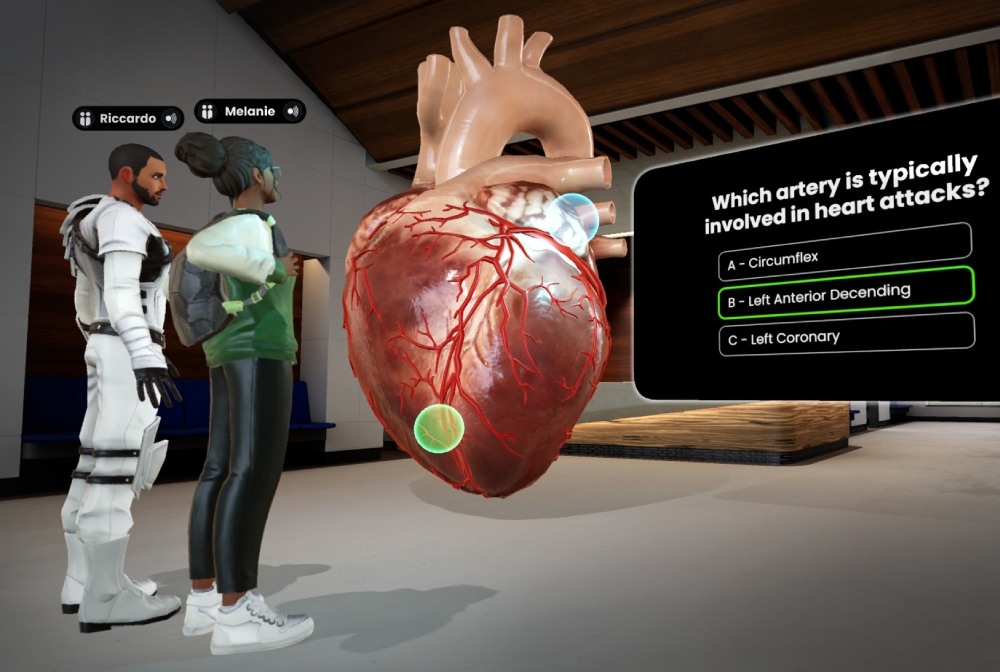In the ever-evolving landscape of education, the integration of digital technologies, particularly through game-based learning and gamification, has opened new horizons for engaging students in a meaningful educational journey. The use of 3D games powered by AI, enabled by platforms like Axon Park, have the potential to revolutionize how we approach teaching and learning. This article explores the benefits of these technologies in education, focusing on the powerful gameplay loops and elements that can support both students and teachers in a dynamic learning environment.
The Power of Digital Game-Based Learning
Digital game-based learning (DGBL) offers an interactive framework that significantly enhances student engagement and motivation. By integrating core educational content into the mechanics of gaming, DGBL transforms the learning experience from a passive to an active process. This approach not only makes learning more enjoyable but also facilitates deeper understanding and retention of knowledge. Research indicates that DGBL can lead to improved outcomes across various disciplines, particularly in STEM education, where complex concepts can be explored in a hands-on, immersive manner.

Virtual Campus
Advantages of 3D Games and Virtual Worlds
3D games and virtual worlds offer unparalleled immersion, making them an ideal tool for educational purposes. Here are several key benefits:
Enhanced Engagement and Motivation
The immersive nature of 3D environments and compelling game narratives keeps students engaged and motivated to learn. This increased engagement is crucial for maintaining attention and promoting sustained learning efforts.
Real-World Skill Development
Beyond academic knowledge, 3D games can foster critical 21st-century skills such as problem-solving, collaboration, and digital literacy. These skills are essential for success in today’s technology-driven world.
Personalized Learning Experiences
Advanced AI tools can tailor learning experiences to individual students’ needs, providing personalized challenges and feedback. This adaptive learning approach helps students progress at their own pace and according to their unique learning styles.
Safe Environment for Experimentation
Virtual worlds offer a risk-free space for students to experiment and explore complex concepts, such as scientific experiments or historical events, without the constraints of physical classrooms or the limitations of traditional learning resources.

Axon Park 3D Learning
Implementing Effective Game Mechanics in Education
To harness the full potential of 3D gaming in education, it’s important to consider the game mechanics that underpin successful learning experiences. These include:
Progression Systems
Incorporating progression systems where students unlock new challenges or rewards as they advance can mirror the educational scaffolding process, gradually introducing more complex concepts and ensuring a structured learning path.
Role-Playing Mechanics
Role-playing elements allow students to embody different roles, providing a deeper understanding of various subjects. This immersive approach can make abstract concepts more tangible and relatable.
Collaborative Challenges
Designing multiplayer games that require teamwork for problem-solving can encourage communication and collaboration skills, preparing students for real-world challenges.
Simulation and Experimentation
Leveraging the power of 3D simulations enables students to engage in hands-on learning experiences, experimenting with concepts in a controlled, virtual environment.
Feedback Systems
AI-driven feedback systems can offer instant, personalized feedback, helping students understand their mistakes and learn from them in real-time.
Narrative-Driven Learning
Embedding educational content within a compelling story enhances engagement and helps students relate to the material on a personal level, improving retention.
Real-Time Interaction
Facilitating real-time interaction with the game environment and other players creates dynamic learning experiences that are both engaging and educational.
Case Studies and Future Directions
Several case studies on ongoing research has demonstrated the effectiveness of these technologies in educational settings. For example, virtual labs in science education allow students to conduct experiments in a safe, virtual space, while historical reconstruction games provide immersive explorations of ancient civilizations. These experiences not only enrich students’ understanding but also inspire curiosity and a love for learning.
Looking ahead, the future of education lies in the continued integration of these advanced digital technologies. As we develop more sophisticated 3D games and virtual worlds, enhanced by AI, we open up new possibilities for personalized, engaging, and effective education.
In Summary
The integration of 3D games, virtual worlds, and advanced AI into education represents a significant shift towards more engaging, effective, and personalized learning experiences. By carefully designing educational content around powerful game mechanics and leveraging the latest technological advancements, educators can create immersive learning environments that captivate students’ interests and foster a deeper understanding of complex subjects. As we continue to explore the potential of these technologies at Axon Park, it’s clear that the future of education will be increasingly interactive, immersive, and tailored to the needs of each individual learner.



